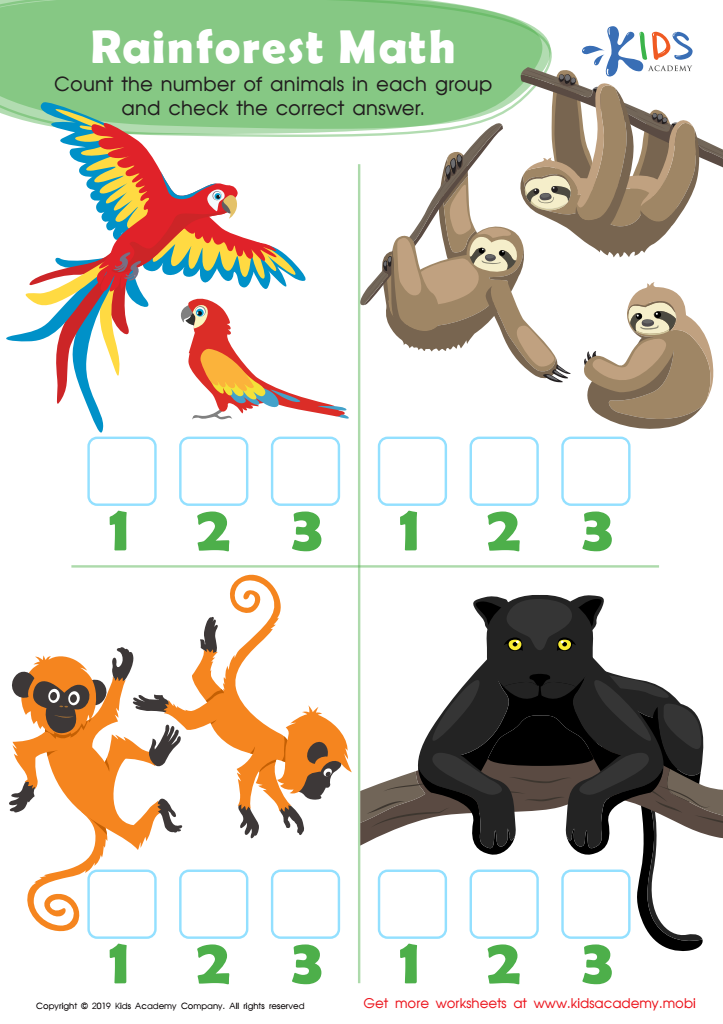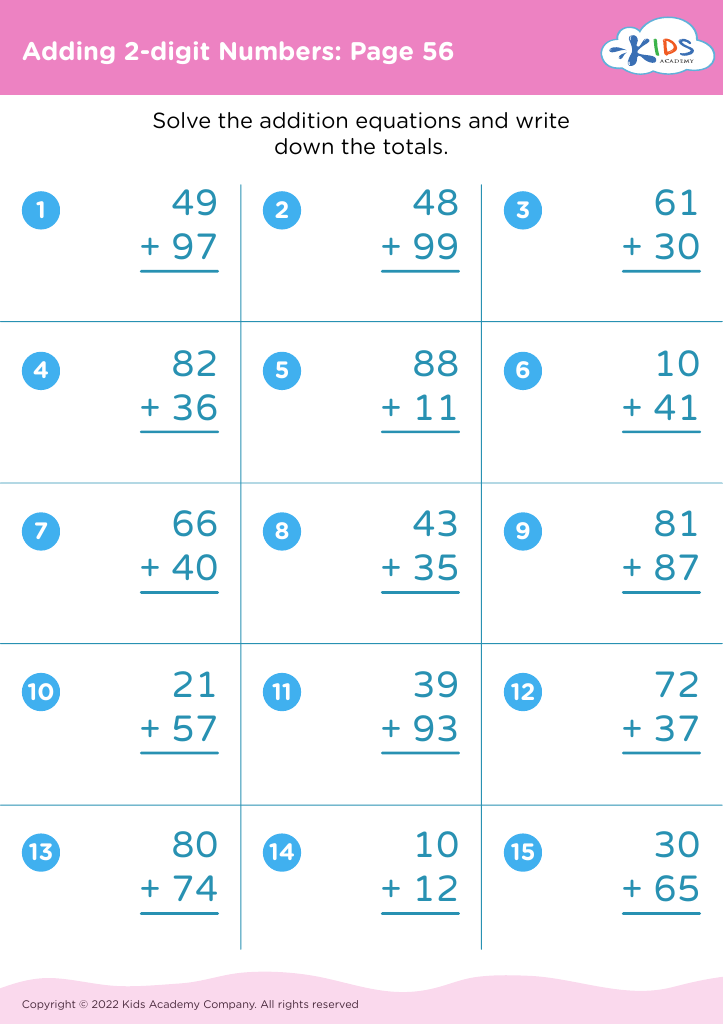Understand sequencing Math Worksheets for Ages 3-8
3 filtered results
-
From - To
Discover our "Understand Sequencing Math Worksheets for Ages 3-8" at Kids Academy! Specially designed by educators, our worksheets help young learners grasp the concept of sequencing, a vital early math skill. Through engaging activities, children arrange numbers, events, or objects in logical order, enhancing their problem-solving abilities and logical thinking. Perfectly tailored for ages 3-8, these fun and interactive worksheets make learning sequencing easy and enjoyable. Empower your child with essential math skills and boost their confidence with our expertly crafted resources. Visit Kids Academy today to explore and download our sequencing worksheets!


Rainforest Math Worksheet
Understanding sequencing in mathematics is crucial for children ages 3-8 because it forms the foundation for many higher-level math skills and cognitive development. Sequencing involves the ability to understand order, follow directions, and predict what comes next. These skills are essential in basic arithmetic operations such as addition, subtraction, multiplication, and division, which all require a logical order to solve problems correctly.
For young children, grasping sequencing enhances their understanding of patterns—a fundamental math concept. It also aids in their comprehension of the number line, which is vital for developing number sense. Children learn to recognize numerals and their order, understand sequences such as counting by twos or fives, and identify which numbers come before or after a given number.
Beyond math, sequencing skills are integral to everyday tasks and overall cognitive development. They help children follow multi-step instructions, organize their thoughts, and improve their problem-solving abilities. For instance, understanding the sequence of daily routines aids in time management and independence. In literacy, sequencing assists in understanding the progression of stories, enhancing reading comprehension.
By focusing on sequencing, parents and teachers provide children with critical tools for academic success and daily life skills, laying a robust foundation for future learning.
 Assign to My Students
Assign to My Students


















